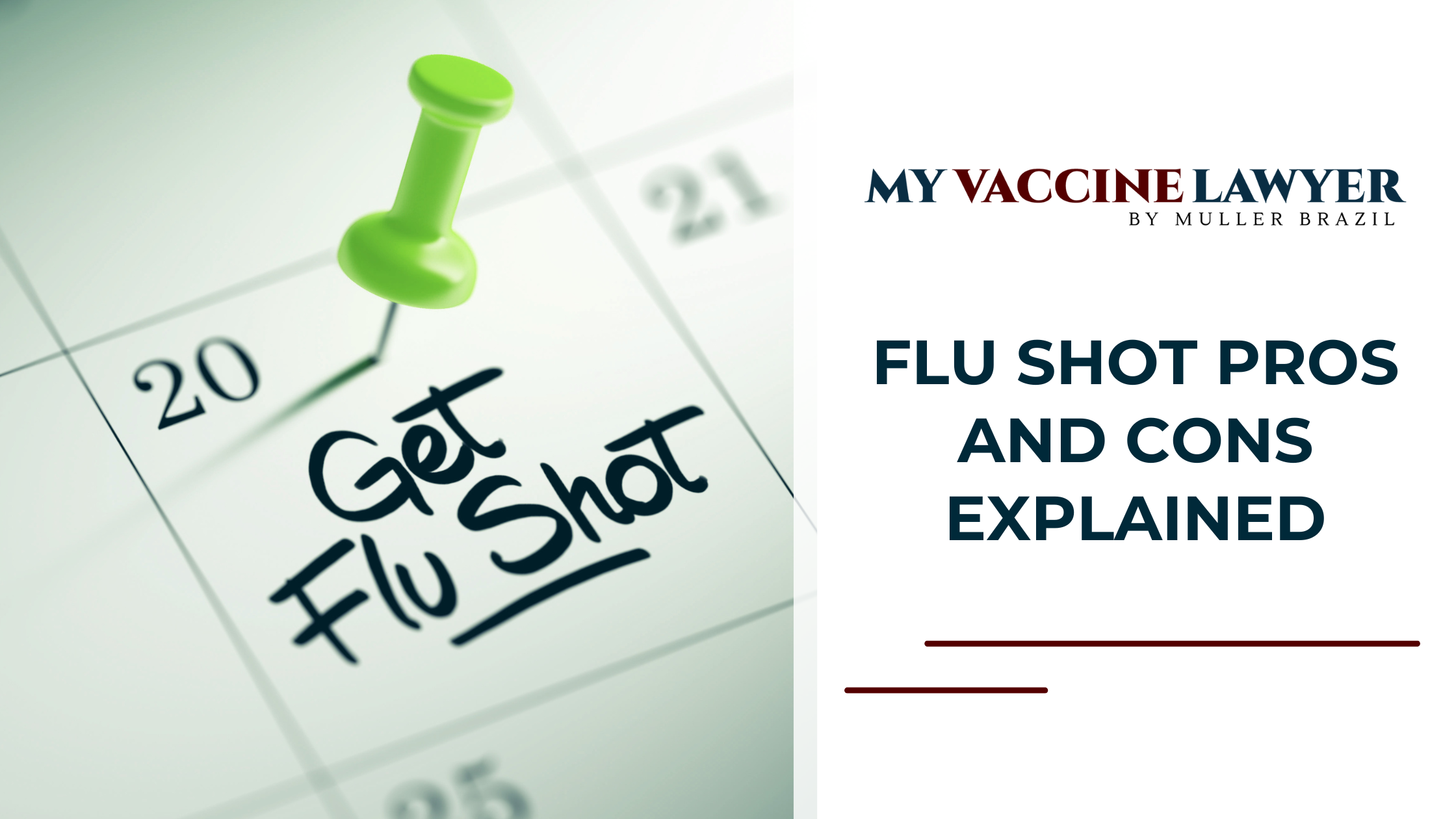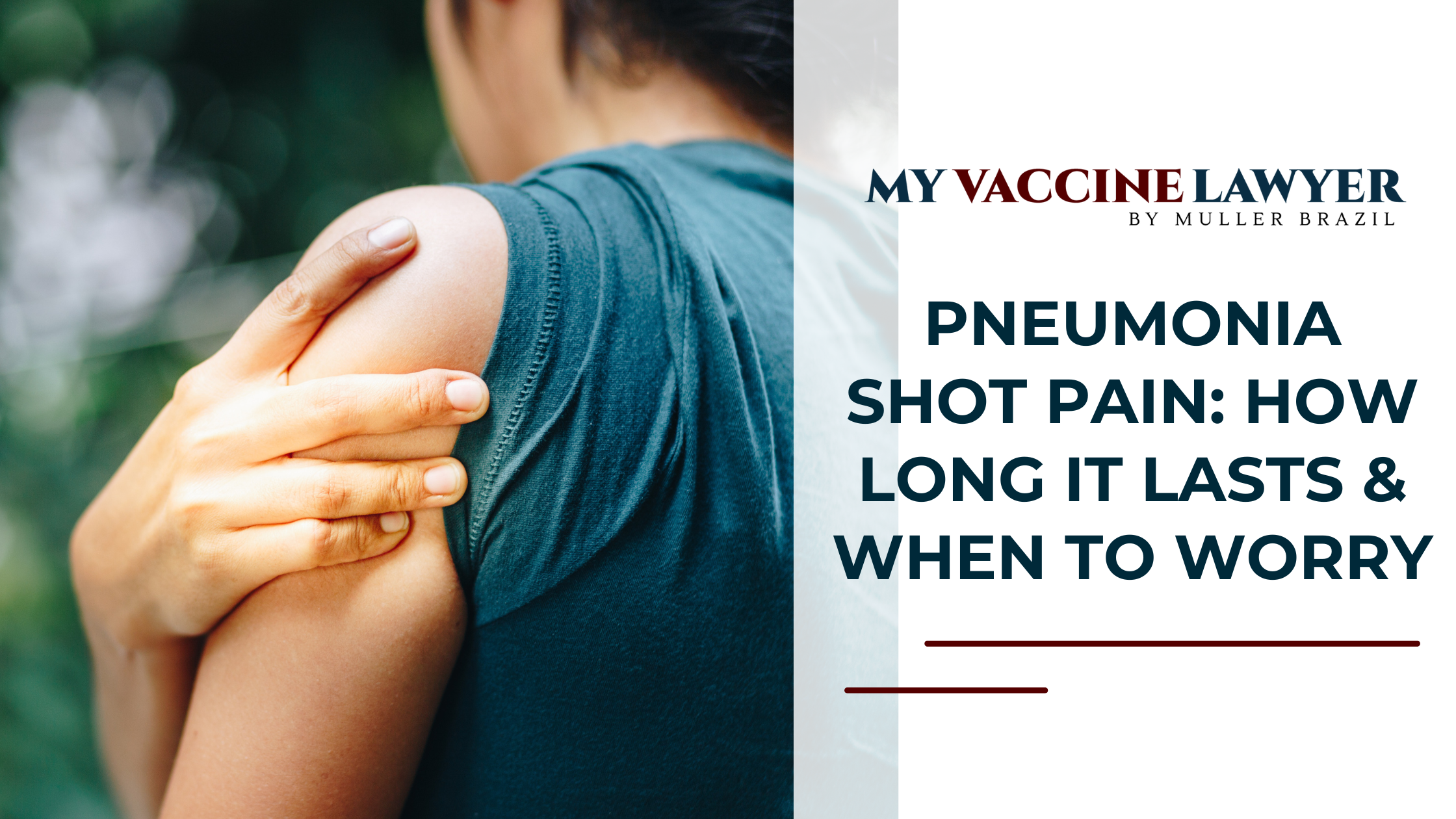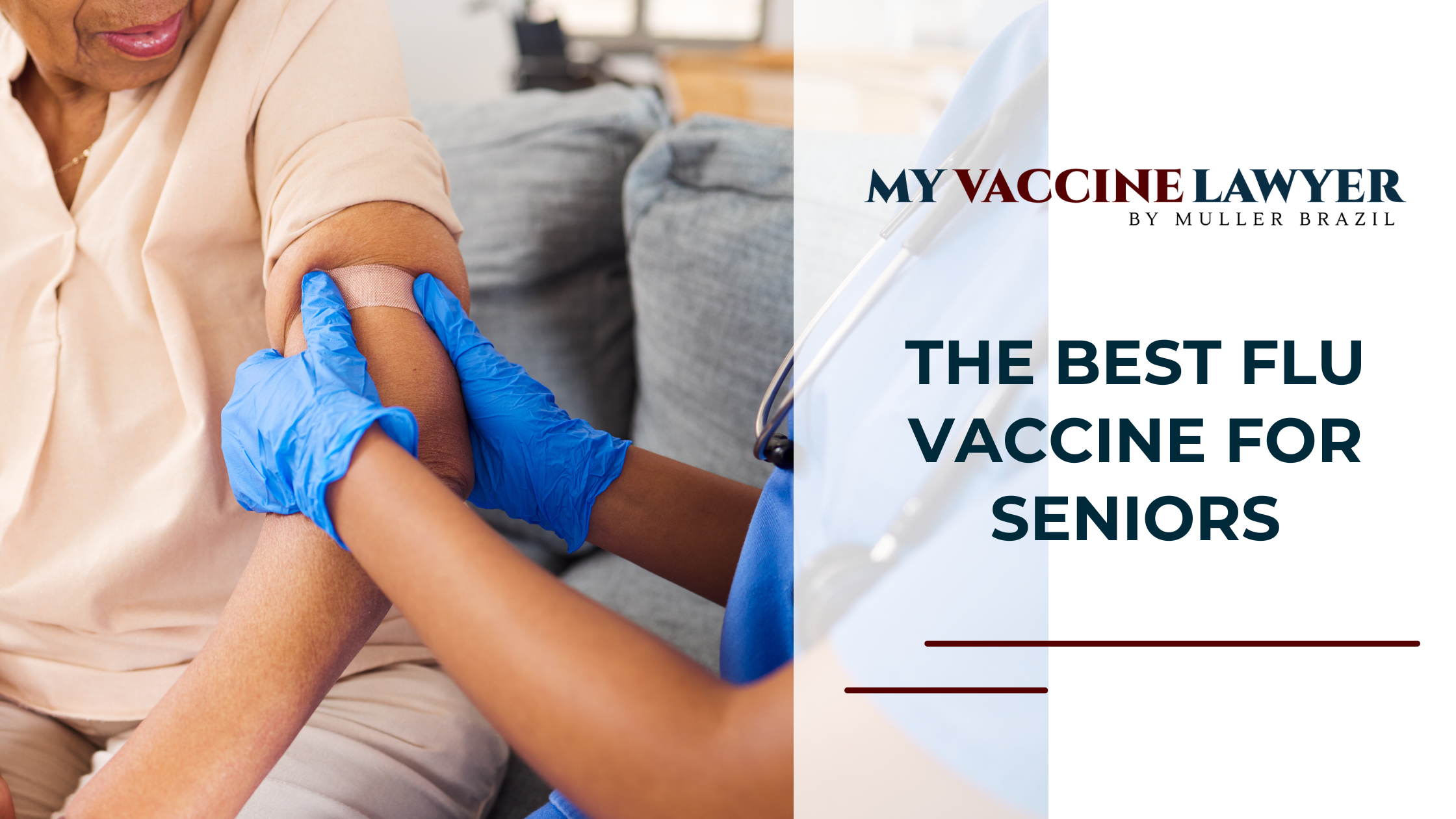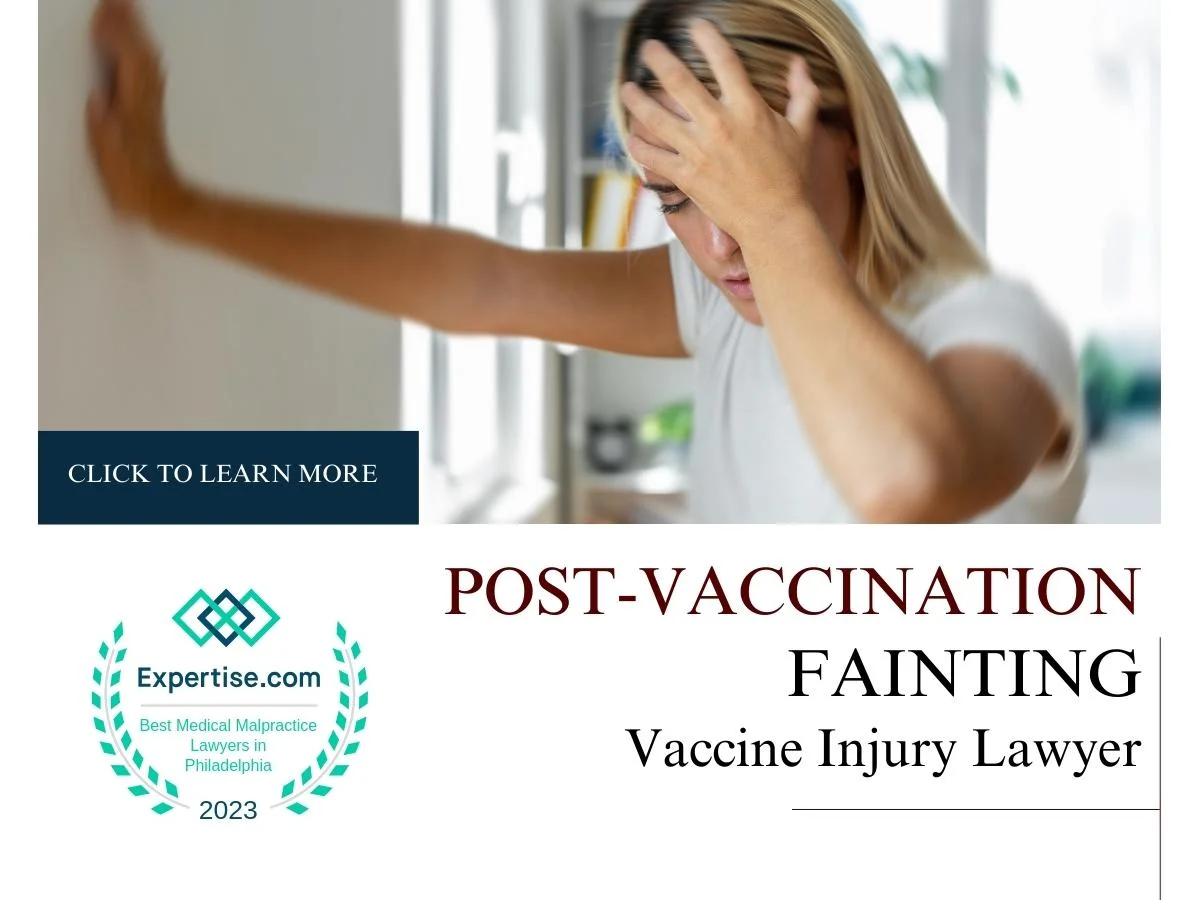Flu Shot Pros and Cons: Should You Get Vaccinated?
The flu shot helps prevent severe illness and hospitalizations, but some people may experience mild side effects or rare complications, making an...
6 min read
Vaccine Injury Law Resources / Paul Brazil / Fainting From Vaccination
 Paul Brazil
:
Jan 5, 2023 8:26:51 AM
Paul Brazil
:
Jan 5, 2023 8:26:51 AM
It doesn’t just happen to children. Fainting from vaccination affects adolescents, adults, and even healthcare professionals receiving routine immunization. In the United States, this is one of the most commonly reported short-term adverse effects after a vaccine injection, especially in young adults and females. It’s often a vasovagal reaction, a drop in blood pressure and heart rate triggered by anxiety, fear, or pain during the procedure.
The Centers for Disease Control and Prevention (CDC) has issued official practice guidelines because of how often syncope after vaccination occurs. In some cases, patients have lost consciousness within seconds of sitting up post-injection. The CDC and FDA recognize that these events, while often brief, carry risk of related injuries, especially head injuries, falls, or trauma that leads to hospitalization. The reality is that fainting during or after a vaccination is not uncommon but if it results in involved head injuries or other adverse events, it becomes more than a medical footnote. It becomes a legal situation backed by real evidence, medical records, and documented injuries.
Fainting after a vaccine injection isn’t just psychological. It's a physiological chain reaction known as vasovagal syncope, and it happens to vaccine recipients of all ages. The most common triggers include fear, pain, anxiety, and the stress of medical procedures. The body interprets these emotional responses as a threat, even when the person is fully conscious and willing.
In response, the nervous system drops both blood pressure and heart rate. This sudden shift limits blood flow to the brain and causes a temporary loss of consciousness. It can happen within seconds, especially in adolescents, young adults, and adult patients who are seated or standing upright during or just after vaccination.
The CDC has identified this as one of the most commonly reported short-term adverse effects following immunization in the United States. Most episodes of syncope after vaccination resolve in under a minute. But the faint itself isn’t the only concern.
A patient who loses consciousness can hit the floor with no muscle control. That’s when the real damage starts.
Syncope after vaccination doesn’t always end safely. While the fainting itself may pass in seconds, the adverse effects that follow can be serious. Patients often fall without warning, with no ability to brace or protect themselves. The result: real, documented related injuries reported in medical records across the United States.
A CDC analysis of fainting reports showed that injuries following post-vaccine collapse include head injuries, facial fractures, dental trauma, wrist fractures, and in some cases, concussions requiring hospitalization. These are not theoretical. They are published in peer-reviewed research, pediatrics case studies, and in the CDC’s own Vaccine Adverse Event Reporting System (VAERS).
In a report published by the CDC, head injury was the most frequently listed adverse event following fainting from vaccination. Many of these occurred among adolescents receiving the HPV vaccine, where fainting caused uncontrolled collapse in clinic or school-based immunization settings.
Falls resulting in trauma to the skull or brain have been tracked in females, young adults, and pediatric patients. A review of VAERS data from 2005–2017 confirmed that most hospitalization events following post-vaccine syncope involved head injuries.
The CDC’s Vaccine Safety Datalink has identified multiple cases of adverse effects caused by post-vaccination falls. These include clavicle fractures, wrist injuries, and even jaw fractures sustained during fainting episodes.
In one study involving over 7,000 adolescents, more than half of all syncope after vaccination cases occurred in patients aged 11–18. The risk was significantly higher in females, especially following HPV and meningococcal vaccines.
The injuries were not due to the vaccine's contents but were directly linked to how patients collapsed often while standing or walking shortly after injection. These cases are reported and logged as adverse effects.
According to the American Academy of Family Physicians published practice guidelines, healthcare settings must apply safety strategies to prevent injuries during and after vaccination. These include:
Keeping vaccine recipients seated or lying down for 15 minutes post-injection
Monitoring adolescents, young adults, and adult patients with known fainting history
Educating healthcare professionals and clinicians on warning signs of vasovagal reactions
Despite these precautions, many patients are still affected. These events are tracked, logged, and often followed up with updated practice guidelines aimed at reducing injury risk.
Failure to apply these strategies has led to documented injuries across multiple vaccination programs in the United States. In many cases, injury outcomes were avoidable which makes them relevant not just medically, but legally.
CDC and VAERS Data on Commonly Reported Vaccines
According to CDC and FDA tracking, the most commonly reported vaccines in fainting-related adverse events are:
Meningococcal vaccine
These three vaccines are consistently linked to syncope after vaccination, especially in adolescents, young adults, and pediatrics. In fact, thousands of fainting reports tied to these vaccines have been reported to the Vaccine Adverse Event Reporting System.
The episodes usually happen within 15 minutes of the vaccine injection. The fainting is triggered by a vasovagal reaction, especially during high-stress medical procedures involving needles.
Studies in pediatrics and adolescent medicine confirm that fainting from vaccination happens most often among adolescents, particularly females aged 11–18. Smaller body size, anxiety, and lower blood pressure make this group more sensitive to vaccine injection–related triggers.
The American Academy of Pediatrics has called for more education for healthcare professionals and clinicians on identifying risk factors before administering a vaccine to younger groups.
Fainting reports by themselves don’t establish compensation eligibility. But when a reported vasovagal syncope episode results in an injury, such as a head injury, broken tooth, or concussion and is backed by proper medical records, it becomes a legally recognized adverse event.
The Vaccine Injury Compensation Program (VICP) has awarded payouts in cases where vaccine recipients were injured due to lack of proper observation or safety protocols post-injection. With over $5 billion already paid to injured individuals, the legal and medical systems both acknowledge that fainting isn’t always harmless, especially when it leads to real, documented harm.
Fainting from vaccination is medically known as vasovagal syncope, and it’s classified as a physiological reaction, not an illness. On its own, it’s not compensable. But when the faint leads to documented trauma, it becomes a reportable adverse event under CDC and FDA definitions.
The Centers for Disease Control uses the term “adverse event” for unexpected medical outcomes following vaccine administration, regardless of whether the vaccine directly caused them. When a vaccine recipient loses consciousness, falls, and sustains a physical injury and this is recorded in medical records, it enters legal territory.
Most syncope after vaccination happens within minutes of the vaccine injection. That’s why CDC guidelines recommend observation periods and proper patient positioning. If these practice guidelines aren’t followed and a patient is allowed to fall, the injury is considered preventable.
Preventable injuries carry legal weight. If a healthcare professional fails to follow established post-vaccine procedures like having the patient sit or lie down and the patient faints and suffers harm, that can support an off-table claim under the VICP.
These cases don’t rely on proving a defect in the vaccine itself. They rely on showing that the injury occurred as a result of vaccination, that it was preventable, and that appropriate care wasn’t given during a known risk window. That combination opens the door to real compensation.
When a vasovagal reaction leads to injury after a vaccine injection, you're not left to figure it out alone. At My Vaccine Lawyer, we focus exclusively on helping injured vaccine recipients get compensated through the Vaccine Injury Compensation Program (VICP). If you suffered an injury after fainting from vaccination, we’ll build your case, file your petition, and represent you.
From your first call, you’ll speak directly with a vaccine injury attorney, not a case screener. Every step of your VICP claim is handled by a lawyer who’s experienced in vasovagal syncope, adverse event litigation, and fainting-related trauma cases. We don’t farm cases out. We don’t hand you off to paralegals. And we’ve recovered millions in VICP settlements for clients across the U.S.
Direct access to an attorney: You speak with a real vaccine injury lawyer, not a call center or assistant.
We handle the entire VICP process: From obtaining your medical records to submitting your claim, we manage it all.
No out-of-pocket legal fees: The VICP pays our fees directly when we win.
Full case strategy and litigation support: We work with medical experts, handle all filings, and argue your case in vaccine court if necessary.
Paul Brazil is a native of Dunmore, Pennsylvania and a graduate of Dunmore High School. For his undergraduate education, he attended Bloomsburg University where he majored in political science. He then went on to earn his JD from Widener University School of Law. Following graduation from law school, Mr. Brazil worked at a large Philadelphia civil defense firm where he litigated workers’ compensation claims and Heart and Lung Act cases. In 2012, he joined with his coworker Max Muller to form Muller Brazil.

The flu shot helps prevent severe illness and hospitalizations, but some people may experience mild side effects or rare complications, making an...

Getting a vaccine is a routine part of staying healthy, but that doesn’t mean it’s always comfortable. If you've recently received a pneumonia shot,...

Vaccines have a powerful role in protecting against dangerous diseases, especially for older adults and individuals at high risk.
